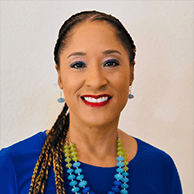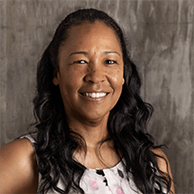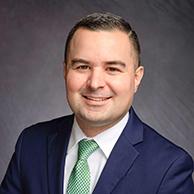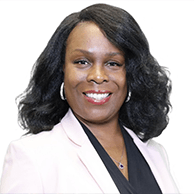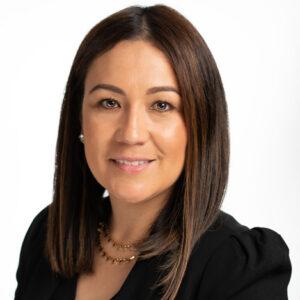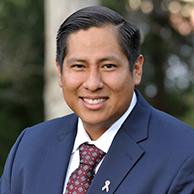 From the Advocate
From the Advocate
July 2023
How Small Businesses Can Outsmart Disaster
I’ve used the word “resiliency” a lot in this column. I’ll just quote myself from my January column: “’Resilience’ is the word of the century.”
I was in Los Angeles last month at CALED’s annual conference, California’s premier training event for economic developers. And, sure enough, I was invited to talk about the “R” word on a panel.
While prepping my remarks, it occurred to me how differently economic professionals use this word from how it crops up in everyday life.
The dictionary definition means “the capacity to withstand or recover quickly from difficulties”. For most people, that is associated with a question of character, a kind of mental and moral toughness. As parents, for example, this is a trait we want to imbue in our kids.
But to economic developers – and our Governor — resiliency is all about strategy: evaluating the reliability of infrastructure, creating a cash reserve in the budget, accurately predicting future economic shocks and stresses, and mitigating against what hasn’t happened yet.
I want to argue that it’s the same – or should be – for small business-owners.
Can you really Outsmart Disaster?
Well, you obviously can’t prevent an earthquake or outrun a wildfire. But you can be resilient in both senses of the word by developing the mindset to keep going after inevitable setbacks…and doing the hard work it takes to expect the unexpected.
I’m writing this at the beginning of July. I wonder if a major wildfire will have struck by the time its published. Wildfires, earthquakes, floods, mudslides, droughts: measuring from 1953 on, California is the second most natural disaster-prone state in the country. (#1 is Texas.)
Then there are the man-made disasters like oil spills, black and brown-outs, and hacker attacks. Most tragically of all — even in a state with the toughest gun control regulations in the country — we have to add mass shootings to this list. And though the official COVID-19 state of emergency is behind us, we all know and understand what a pandemic looks like now.
Add to all this personal disasters like the loss of a partner, or a key supplier, a death in the family, even just the rerouting of streets in front of your storefront: all of these can result in a business interruption and economic injury.
It’s hard to talk about this topic without catastrophizing because we’re literally talking about catastrophes.
So, the temptation to hide one’s head in the sand is totally understandable. But operating a resilient business is really about using every tool you can to protect yourself. That’s the point we’re trying to make with our Outsmart Disaster business continuity training program. The kinds of questions covered in the training are designed to make small businesses think about what may be obvious to large businesses:
- Is your place of business as safe as it can be in case of wildfire, earthquake or other natural disaster?
- Are you adequately insured, and do you know how to make a claim when you need it?
- Do you have an emergency plan? Are your employees trained to help you respond to a crisis?
- Is your data secure?
- If injury occurs, do you know how to quantify it?
The most important part is quite honestly demonstrating the discipline to sit down and do it…and that’s where my team comes in.
But there are a couple of points that I want to underscore.
First, and most importantly, let me help you answer this question: are you adequately insured? “No” is the safe bet.
Most statistics on this are gathered by the insurance industry so I’d understand some skepticism here, but surveys consistently tell us that 75 percent of U.S. businesses are underinsured and 40 percent of small business owners “go naked”, that is, have no commercial insurance at all. It’s not just about how big the policy needs to be, it’s about making sure your biggest risk points are covered.
With major insurance companies pulling out of the California market altogether, opinions run strong on how best to protect the marketplace. Are rates too high to afford…or not high enough to create a competitive market? I’m not entering the debate, after all, insurance agents are small business-people too.
But I do want to say that cultivating a relationship with an insurance broker you trust is as important an investment of time as cultivating relationships with lenders or business advisors in our California Small Business Center Network. And the same rule of thumb holds true for each: don’t wait until you’re in trouble to create these relationships.
A second point I want to hammer home is that evaluating risk for your business also means looking at your region the way economic developers do. I’m talking about questions like these:
- What is the key infrastructure of your region and how stable is it?
- What is the emergency management capacity of your city and county?
- What is your region’s long-term economic plan and how might it impact your industry?
- In case of a disaster, do you know how to report your damages to county officials so they can work quickly to unlock state and federal relief funding?
Is that making it seem scary again? I don’t mean to! The message I’m really trying to give is that information is power and that getting prepared for predictable disaster risk is more subject to your control than many other business unknowns. As my mother always said (and probably yours too!): “No one plans to fail, they only fail to plan.”
References:
- Governor Newsom Highlights New AI, Satellites, Tech and Aircraft Keeping Californians Safer This Wildfire Season | California Governor
- Resilient Business Challenge | Outsmart Disaster (ca.gov) target=”_blank” rel=”noopener”
- Economic Development Recovery and Resiliency Playbook – CALED target=”_blank” rel=”noopener”
- Get business insurance | U.S. Small Business Administration (sba.gov) target=”_blank” rel=”noopener”
- CA Department of Insurance target=”_blank” rel=”noopener”
- How Much Does Business Insurance Cost? (2023 Guide) – Forbes Advisor target=”_blank” rel=”noopener”
- What Is Business Interruption Insurance? 2023 Guide – Forbes Advisor target=”_blank” rel=”noopener”
- Common Business Insurance Mistakes To Avoid – StartupGuys.net target=”_blank” rel=”noopener”








